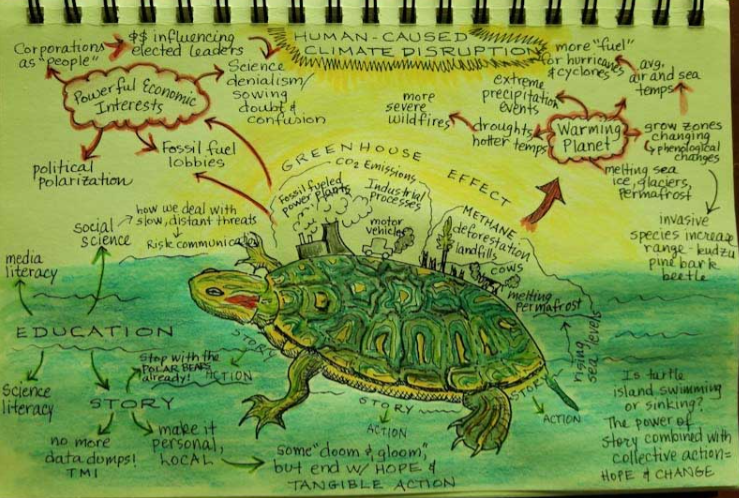Lessons from Climate Generation's Teacher Stay IN-stitute

In July, I attended Climate Generation’s Teacher Summer ‘Stay IN-stitute’, a three-day virtual conference on climate change education with educators participating from around the country. Founded by polar explorer Will Steger, Climate Generation is a Minnesota-based organization whose mission is to empower individuals and their communities to engage in solutions to climate change.
Similar in many ways to the professional learning opportunities that Shelburne Farms offers educators, Climate Generation organized a virtual learning platform, keynote speakers, workshops, and presentations to support educators to gain the skills, tools, and resources to teach climate change concepts and empower their students in all subject areas. As a professional learning provider at Shelburne Farms I was asked to facilitate experiences for New England teachers before, during, and after the Stay IN-stitute. It was great to connect with local educators to reflect on our learning and process our conference experiences. For teachers, connecting with a local cohort allows for extended support and encourages accountability with one another. Teachers embraced the opportunity to ask questions and dig into plans for how they would implement climate change education with their students in the coming school year.
I am jump starting my climate change education work this fall channeling the positive energy of the gathering, knowing I am in good company as part of a nationwide network of climate change educators and focusing on these important takeaways and reminders:
- Climate change education provides the opportunity to envision and create the world in which we want to live. Approaching this not with fear but through collaboration, innovation, and with a solution mindset enables us to enact real, sustainable change.
- Solutions must first and foremost focus on the injustices being disproportionately inflicted upon communities of color and low income communities and particularly on the needs of youth and our future generations.
- Climate justice and racial justice are deeply interconnected and we can not address one without addressing the other.
- Centering traditional ecological knowledge and amplifying voices, stories, and experiences of people who are Black, Indigenous, and People of Color is necessary, relevant, and impactful in the lives of our students.
- We must correct misinformation. Misinformation can be identified and categorized. Knowing how to identify it when it appears commonly in conversation or on social media is the first step toward correcting it. We must learn and teach this skill vital for media literacy.
Climate Generation facilitated a great gathering and recently published a blog recapping the event. You can check out participants’ tweets, quotes, word clouds, and artwork summing up their takeaways and depicting the future they want to live in!